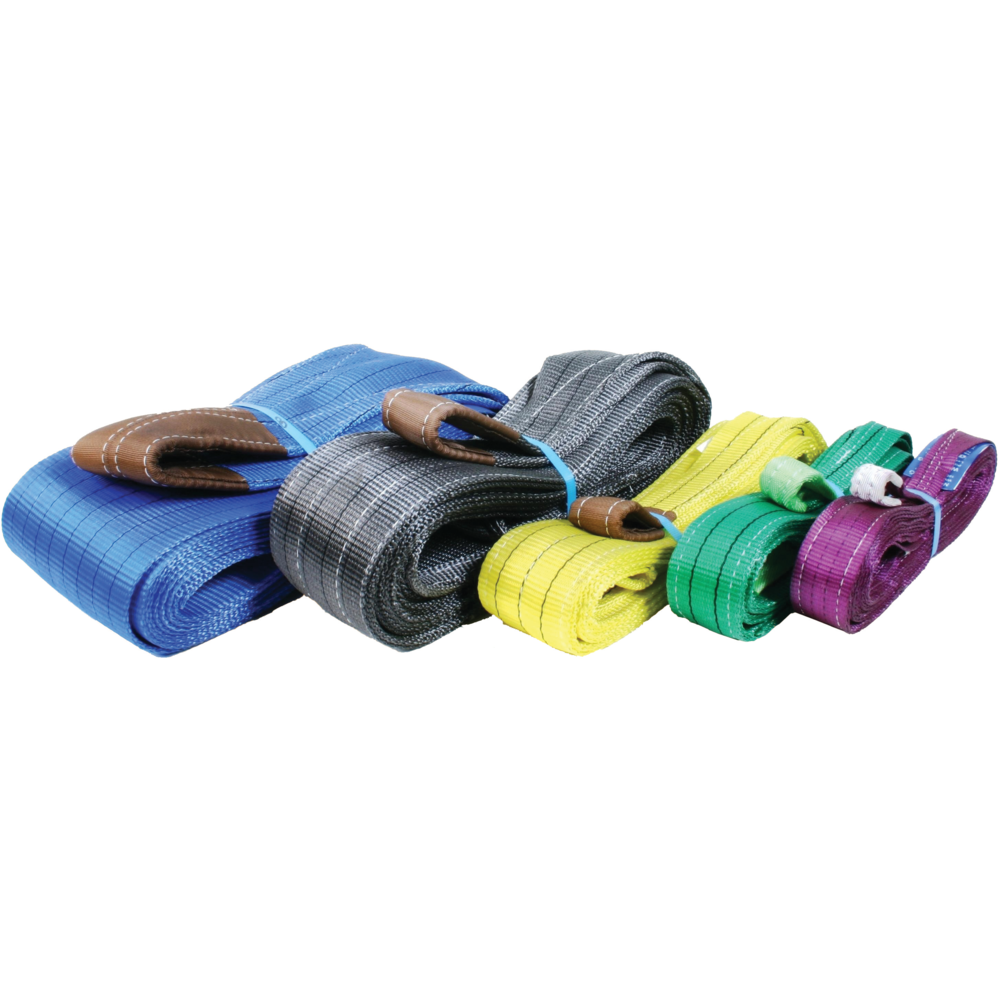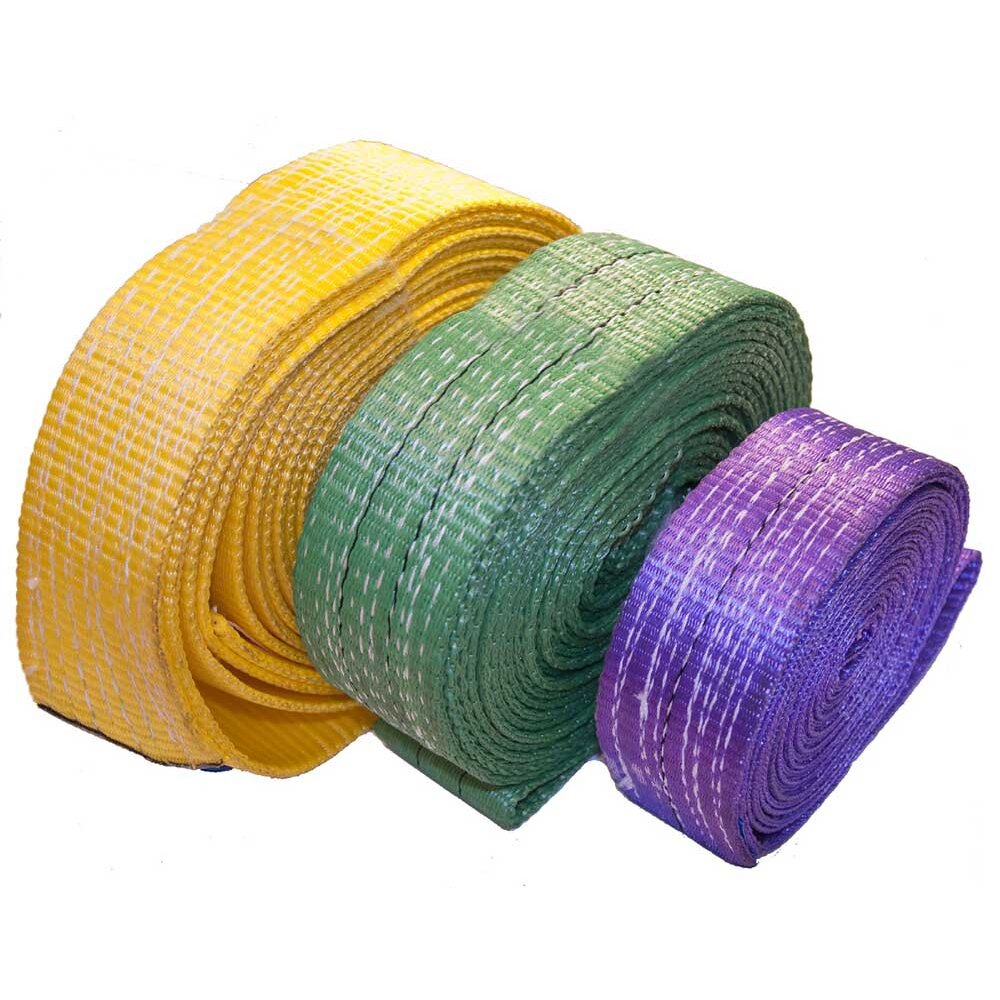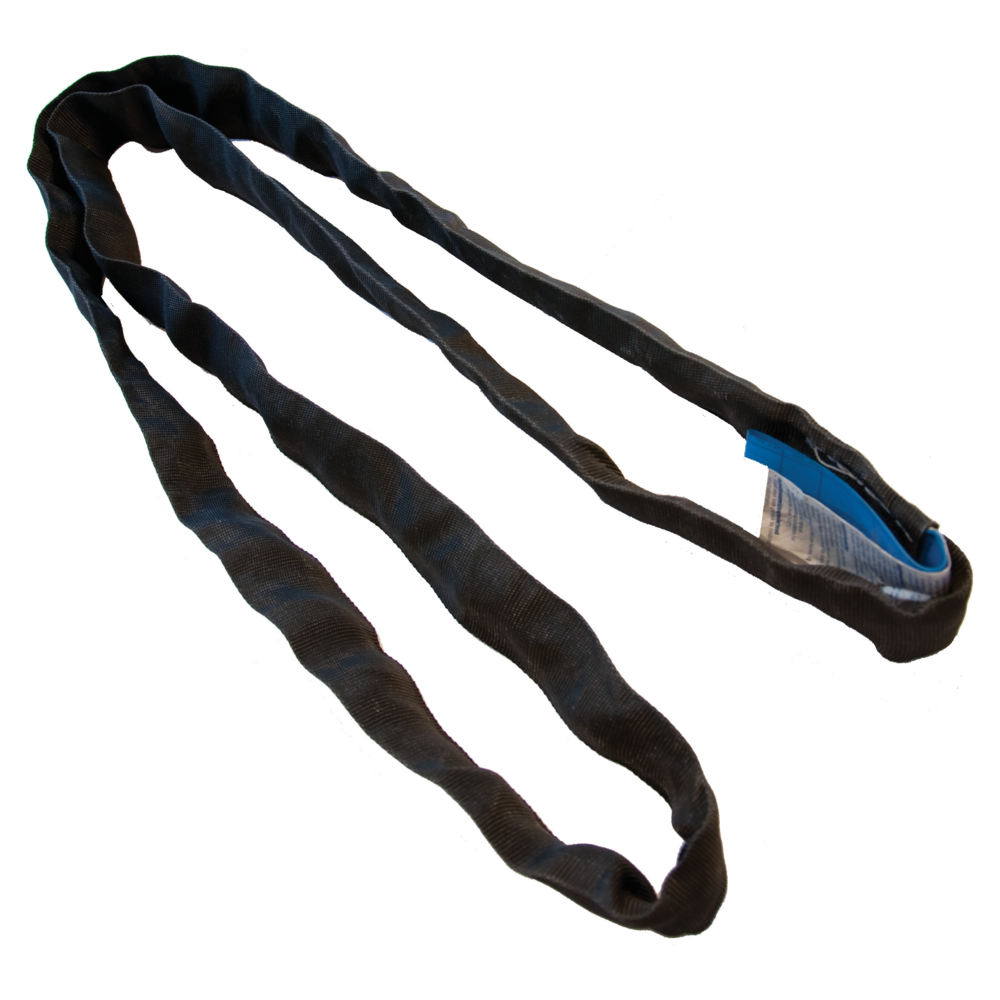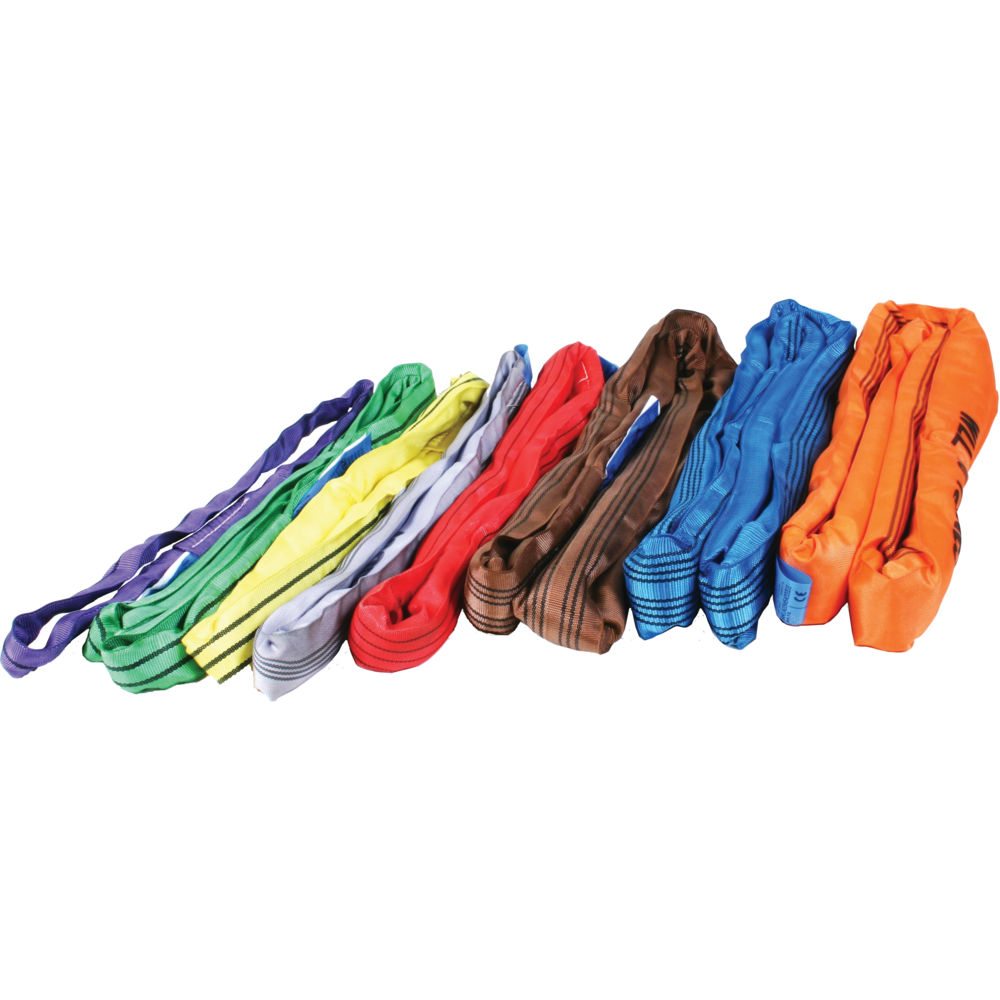Use in adverse environments or hazardous applications
The resistance to chemicals varies between the material from which round slings and webbing slings are manufactured.
The effects of different chemicals to synthetic fibres is summarized below:
a) polyester (PES) is resistant to most mineral acids, but is damaged by alkalis
b) polyamides (PA) are virtually immune to the effect of alkalis; however, they are attacked by mineral acids
c) polypropylene (PP) is little affected by acids or alkalis, and is suitable for applications where the highest resistance to chemicals, other than solvents, is required.
d) Dyneema® is very good resistant against acids and alkalis.
ATTENTION
Solutions of acids or alkalis which are harmless, can become sufficiently concentrated by evaporation and cause damage. Contaminated slings should be taken out of service at once, soaked in cold water, dried naturally and referred to a competent person for examination. In case of any doubts, always contact your supplier for more information.
Slings with grade 8/10/12 fittings and multi-leg slings with grade 8/10/12 master links should not be used in acidic conditions. Contact with acids or acidic fumes causes hydrogen embrittlement to grade 8/10/12 materials. If exposure to chemicals is likely, CERTEX should be consulted.
Temperature affects
Rounds lings are suitable for use and storage in the following temperature ranges:
a) polyester and polyamide: -40°C to +100°C,
b) polypropylene: -40°C to +80°C.
c) Dyneema® -50°C to +70°C.
At low temperatures ice formation will take place if moisture is present. This may act as a cutting agent and an abrasive causing internal damage to the sling. Further, ice will lessen the flexibility of the sling, in extreme cases rendering it unserviceable for use in extreme cases.
These ranges vary in a chemical environment, in which case the advice of CERTEX should be sought.
For drying the slings, limited indirect ambient heating, is acceptable within these ranges.
Dyneema® does not take up (absorb) water, unlike the other raw materials such as Polyester and polyamide.
Affects of ultra-violet radiation
The man-made fibres from which the round sling is produced are susceptible to degradation if exposed to ultra-violet radiation. Round slings should not be stored in direct sunlight or sources of ultraviolet radiation
Use in adverse environments or hazardous applications
The resistance to chemicals varies between the material from which round slings and webbing slings are manufactured.
The effects of different chemicals to synthetic fibres is summarized below:
a) polyester (PES) is resistant to most mineral acids, but is damaged by alkalis
b) polyamides (PA) are virtually immune to the effect of alkalis; however, they are attacked by mineral acids
c) polypropylene (PP) is little affected by acids or alkalis, and is suitable for applications where the highest resistance to chemicals, other than solvents, is required.
d) Dyneema® is very good resistant against acids and alkalis.
ATTENTION
Solutions of acids or alkalis which are harmless, can become sufficiently concentrated by evaporation and cause damage. Contaminated slings should be taken out of service at once, soaked in cold water, dried naturally and referred to a competent person for examination. In case of any doubts, always contact your supplier for more information.
Slings with grade 8/10/12 fittings and multi-leg slings with grade 8/10/12 master links should not be used in acidic conditions. Contact with acids or acidic fumes causes hydrogen embrittlement to grade 8/10/12 materials. If exposure to chemicals is likely, CERTEX should be consulted.
Temperature affects
Rounds lings are suitable for use and storage in the following temperature ranges:
a) polyester and polyamide: -40°C to +100°C,
b) polypropylene: -40°C to +80°C.
c) Dyneema® -50°C to +70°C.
At low temperatures ice formation will take place if moisture is present. This may act as a cutting agent and an abrasive causing internal damage to the sling. Further, ice will lessen the flexibility of the sling, in extreme cases rendering it unserviceable for use in extreme cases.
These ranges vary in a chemical environment, in which case the advice of CERTEX should be sought.
For drying the slings, limited indirect ambient heating, is acceptable within these ranges.
Dyneema® does not take up (absorb) water, unlike the other raw materials such as Polyester and polyamide.
Affects of ultra-violet radiation
The man-made fibres from which the round sling is produced are susceptible to degradation if exposed to ultra-violet radiation. Round slings should not be stored in direct sunlight or sources of ultraviolet radiation.
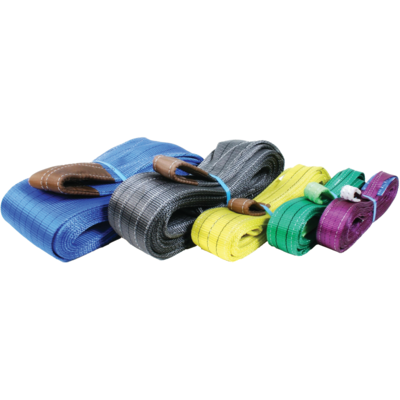
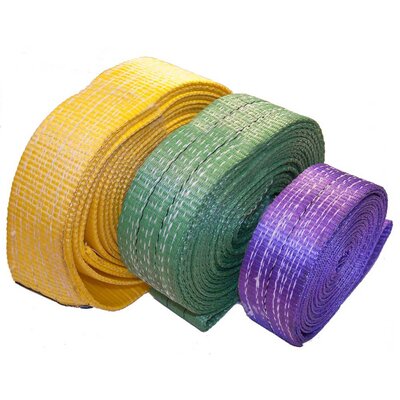
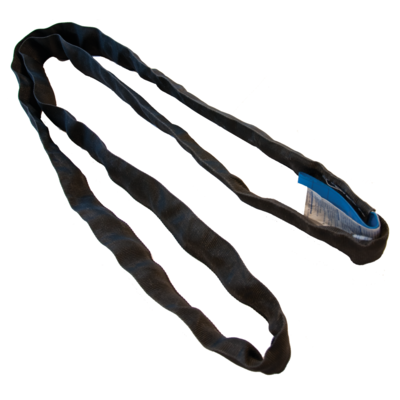
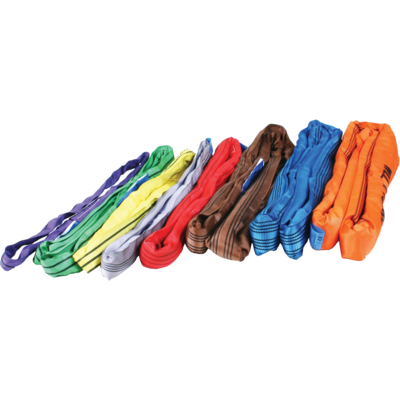
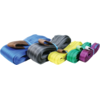
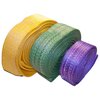
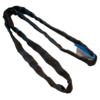
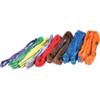




Do you have any questions?
If you have any additional questions, please contact us and we will answer you.
